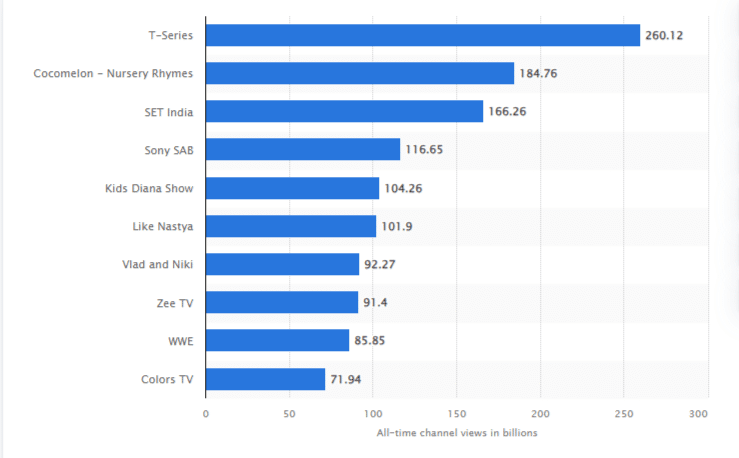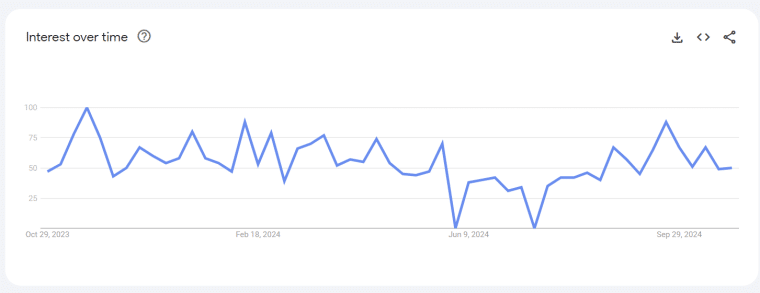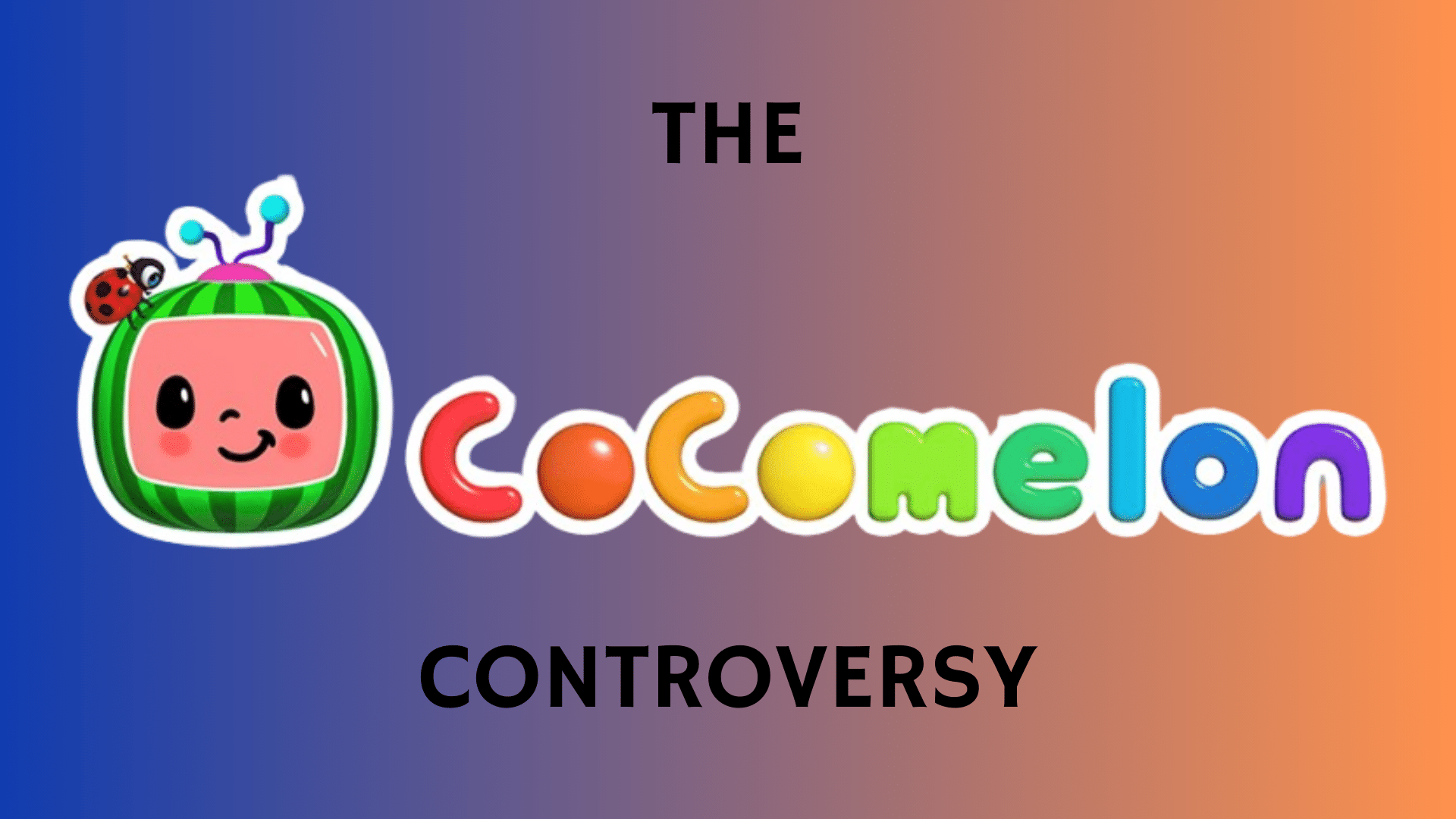The billions of views are proof — children love CoComelon. But what about parents? The CoComelon controversy suggests that not everyone is thrilled with the show’s catchy tunes and rapid scene changes. Some parents described the show as addictive and over-stimulating, while others draw attention to a more specific controversy surrounding its LGBTQ characters.
Our experts have detailed both CoComelon controversies in this article. Whether you’re a parent or a business owner in the entertainment industry, you’ll find expert opinions, valuable insights, lessons, and more.
CoComelon Controversy – Key Facts
- CoComelon, a children’s YouTube channel and animated series, is one of the most popular shows ever released on the platform.
- Many parents criticized the show for being over-stimulating for children because of its rapidly changing scenes.
- In 2023, CoComelon’s spinoff series CoComelon Lane faced a backlash for featuring same-sex parents and their son wearing a tiara and a tutu.
The Story of the CoComelon Controversy
The CoComelon controversy concerns two topics — the first one is about parents’ concerns on whether the show is over-stimulating, and the second is about a 2023 episode segment of CoComelon Lane’s inclusion of LGBTQ characters.
What is CoComelon?
CoComelon is a children’s YouTube channel and Netflix show. It focuses on the life of a toddler called JJ and his family. Each episode is based on nursery rhymes and songs.
According to CoComelon’s website, there are five good reasons to love the show:
- It supports children’s early years development by showing similar situations from JJ’s life.
- It teaches kids how to behave in social situations.
- It has a song for all aspects of a toddler’s life, from family life to pre-school.
- It helps with parenting as it captures children’s attention through educational content.
- It promotes inclusivity and diversity so more children relate to the show.
Once independently owned, CoComelon was sold to Moonbug Entertainment in 2020. By that time, the show’s content had generated around 2.5 billion YouTube views and made up to $11.3 million per month from ads. The same year, CoComelon launched on Netflix and broke a record by staying on the Top 10 list for 62 days.
In 2021, Candle Media, a media company co-founded by former Disney executives, acquired Moonbug Entertainment.
According to Nielsen, CoComelon garnered 33.3 billion minutes of viewing in 2021, with only 15 episodes. This suggests that children have watched each episode more than once — three times per episode in Q4 2021 as per the Nielsen data, to be exact.
As of July 2024, CoComelon has the second most viewed and the fourth most subscribed YouTube channel. The graph below shows the most viewed YouTube channels of all time:

CoComelon has other YouTube shows, including Cody Time, JJ’s Animal Time, CoComelon Classroom, and Nina’s Familia; a Netflix show called CoComelon Lane; and a Spotify podcast called CoComelon Story Time.
Parents’ Criticisms
Several parents have criticized CoComelon for being overstimulating and addictive.
Some said their children zoned out while watching CoComelon, while others went as far as blaming the show for tantrums and speech delays.
A TikTok account called The Circus Brain suggests that the scenes change very quickly in CoComelon, especially compared to other kids’ shows, which may have an effect on keeping the children hooked.
@thecircusbrain
Another user has criticized the flashing lights and bright colors in the show, saying children become “hyper-engaged” when they see these.
@dadswhotry Crack-o-Melon might keep your kids engaged, but at the cost of killing your kids attention span. #cocomelon #kidsshow #lucasthespider #tumbleleaf #puffinrock
Experts have expressed a wide range of views.
Children’s laureate and author Frank Cottrell-Boyce said the sedative effect of CoComelon on children was concerning. “If you bundle CoComelon into a five-hour package there’s a word for it — cocaine melon,” he told The Times.
Child development specialist Jerrica Sannes explained to Evie Magazine how the show can be addictive:
Cocomelon is so hyper-stimulating that it acts as a drug, a stimulant. The brain receives a hit of dopamine from screen time, and it seems that the stronger the ‘drug’ (aka the level of stimulation a show delivers), the stronger the ‘hit’.
Other specialists suggest CoComelon is only a part of the problem and is not the only show to blame.
Psychologist Dr Melissa Dvorsky spoke to WJLA, pointing out research about children’s screen time. “There’s been some studies that have shown that when children watch shows like that, like CoComelon, before age 2 when they look at their executive functions later at age 9, they notice that those kids have difficulty with executive functions,” she told the news outlet, suggesting that the problem was related to screen time in general.
A pediatrician called Dr Mona, who goes by @pedsdoctalk on Instagram, also said the controversy was not specific to CoComelon. She stated the fact that many children are born neurodivergent, which is not caused by a single show. “Hyperstimulation is true for any screen time,” she said, highlighting the importance of monitoring how much children watch shows or videos.
View this post on Instagram
CoComelon Lane Controversy
In 2023, Netflix launched CoComelon Lane, a new spinoff series featuring shorter episodes and narrative-based dialogues.
In one episode segment, the series showed a young boy dancing in a tutu while his dads supported him. Some parents and social media users found this problematic. They raised concerns, especially after a radical conservative conspiracy theorist on X made it more visible by sharing it:
The new CoComelon Lane on Netflix has a boy in a dress dance for his 2 gay dads
CoComelon is the most popular show for babies and toddlers ages 2+ pic.twitter.com/wSYyEZEzMJ
— End Wokeness (@EndWokeness) December 20, 2023
Consumers’ Research executive director Will Hild said the clip went beyond accepting same-sex families and encouraged grooming and cross-dressing. The scene received backlash from certain other parents, who said children’s shows were not the place to promote a certain “political agenda”.
Not everyone found it problematic, though. Many parents supported the show for including different types of families, as a way of teaching children to respect everyone. Much of the complaints seemed to come from a small group of partisan influencers.
Netflix Jr had previously faced backlash for featuring a nonbinary character in its show Ridley Jones. After a significant social media backlash, Netflix canceled Ridley Jones without any explanation.
The power of speaking up!! Netflix has AXED the kids show Ridley Jones that had a non-binary character in it! Every voice in this fight matters 💥 https://t.co/0pPo1aAnv8 pic.twitter.com/QOExce3N6T
— Gays Against Groomers (@againstgrmrs) March 16, 2023
The streaming platform hasn’t talked about the CoComelon Lane controversy.
The Consequences of the CoComelon Controversy
CoComelon remains one of the most popular shows for babies, toddlers, and children, despite the controversies.
That said, its popularity combined with controversies has led to various people sharing their experiences online. The keyword “is CoComelon bad for kids” gets 3,300 average monthly searches in the US as of 2024 according to Ahrefs data. Searching this keyword will give you a plethora of content, from psychologists’ interviews to parents’ opinions on online forums. Below you can see data from Google Trends showing continued searches for “is CoComelon bad”.

As for the second controversy concerning the two dads and their son as CoComelon characters, its biggest consequence was social media backlash. Some conservative figures called for a boycott on Netflix, as they did when beer brand Bud Light partnered with a transgender influencer.
What Can We Learn From the CoComelon Controversy?
Some parents say they’ve seen the show’s negative effects on their child, others find it completely okay. Some say CoComelon promotes “the woke agenda”, while others believe it embraces diversity.
The CoComelon controversy shows us that perception of media content can be incredibly subjective. Instead of consulting social media, it’s best to seek answers from trusted resources. In parents’ case, a trusted source would be a child development specialist, and in business owners’ case, a media ethics consultant or consumer research specialist.
In an interview with The New Yorker, Richard Hickey, the chief creative officer at Moonbug, CoComelon’s parent company, was asked about children’s attention in a business that profits from screen time. While streaming platforms might encourage extended periods of viewing, he emphasized that Moonbug’s goal was to provide a safe environment. “If your kid is watching our content for half an hour, or fifteen minutes, or however long it might be, you know that nothing bad is going to happen — that they’ll be exposed to a very warm world,” he said.
This, again, holds the parents or caregivers to follow the American Academy of Pediatrics’ screen time guidelines. As for businesses, they can make the parents’ job easier by offering educational value in their content and communicating recommended usage time clearly.
